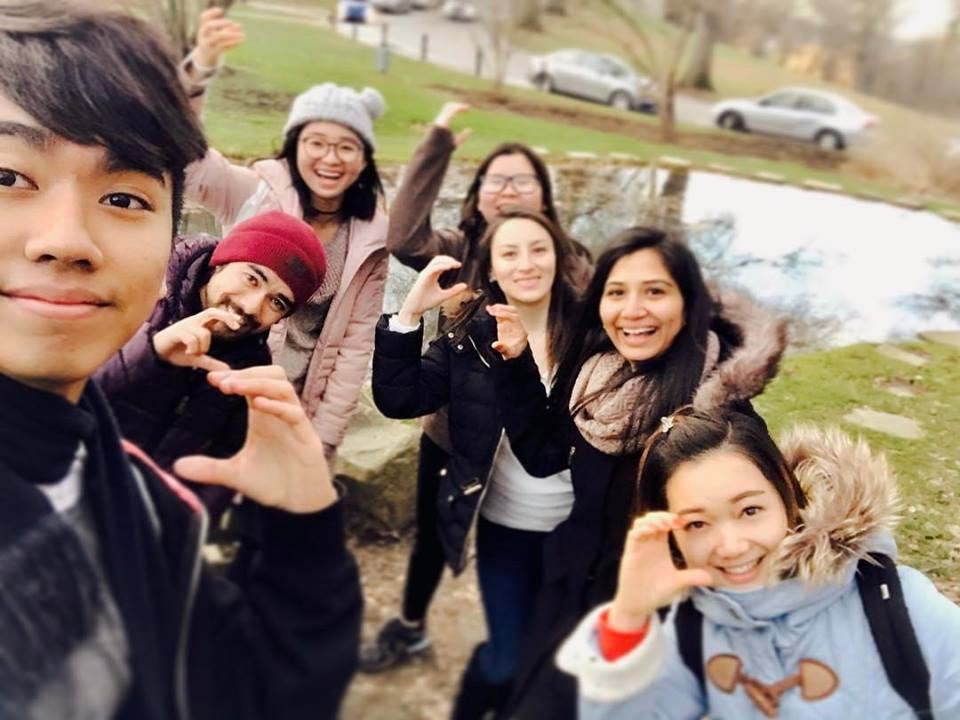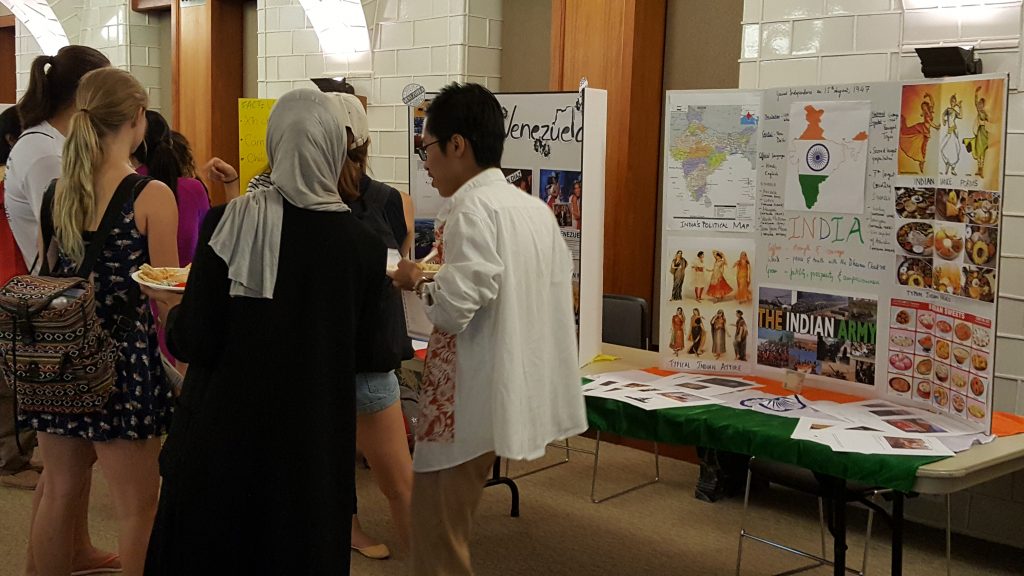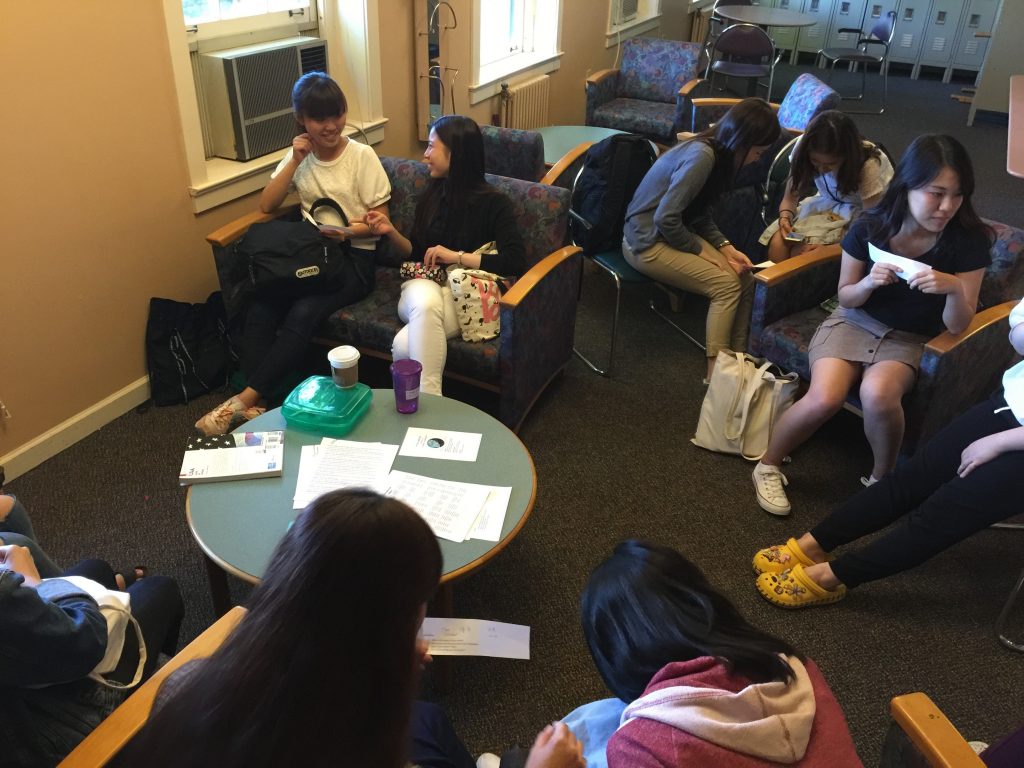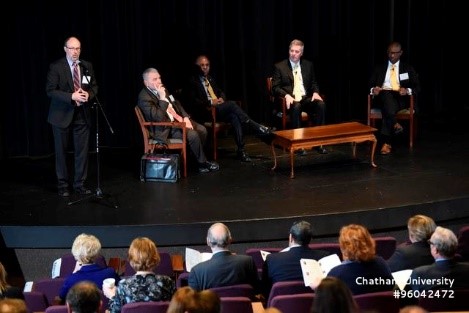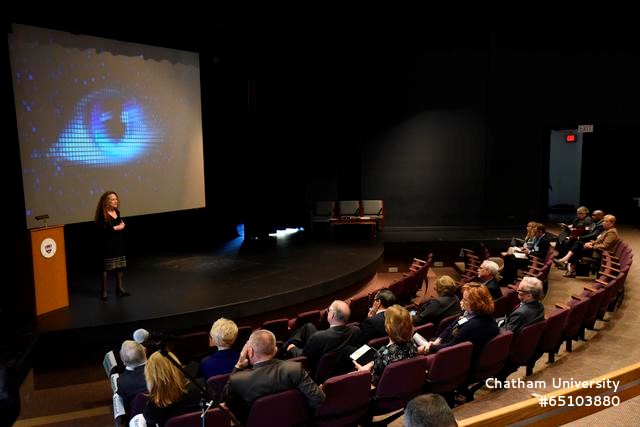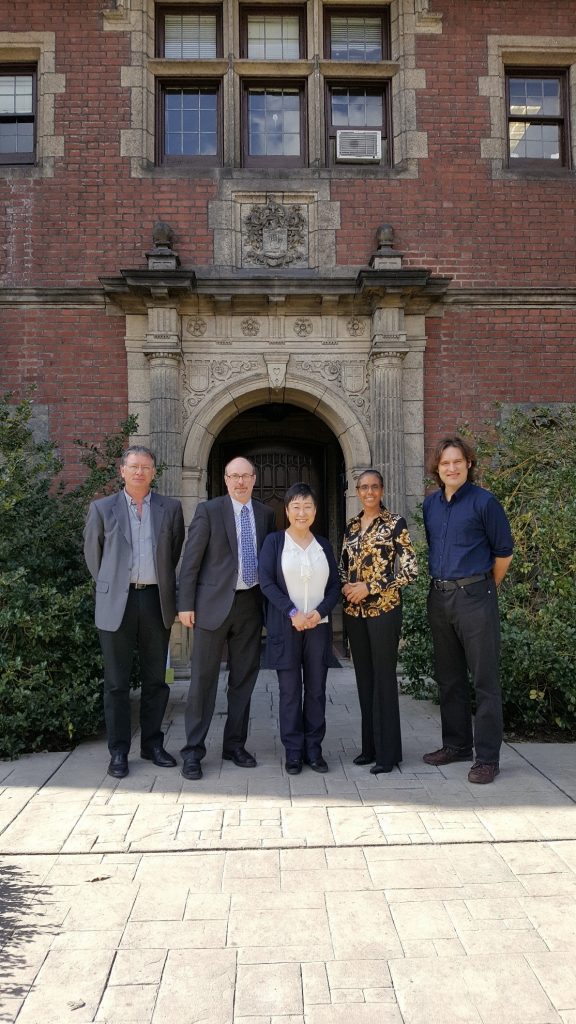By Kate Emory, International Student Services Coordinator, and Sylvia Shipp, ELP Lecturer
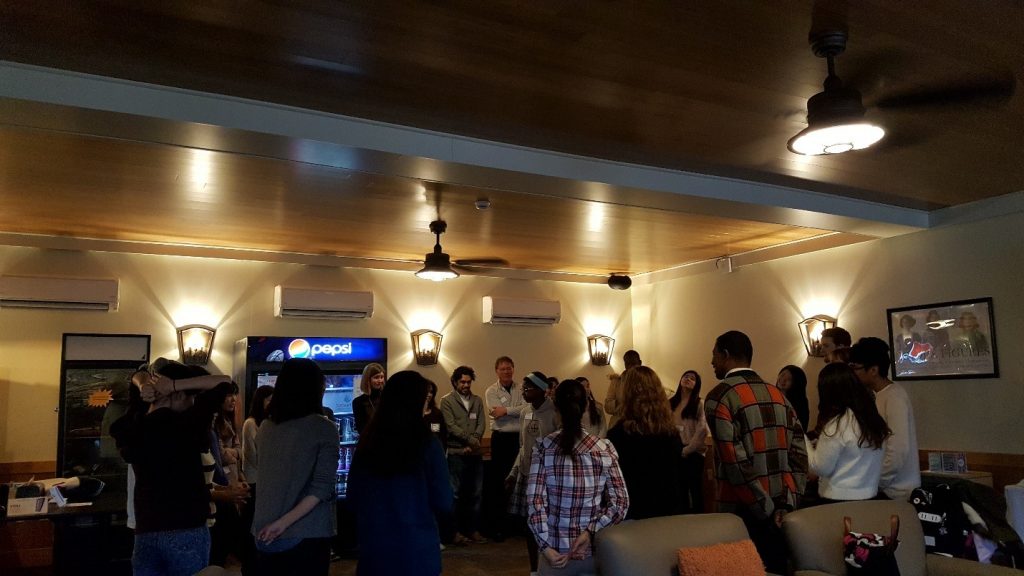
It has been a lively semester with lots of fun events for our international students. Office of International Affairs (OIA) kicked off the spring semester by hosting a Global Mixer, a standing-room-only social event rich with games and food, in the Carriage House. Following this event was our fun-filled International Karaoke Night, where you can expect to hear students sing songs in many different languages, including Chinese, Japanese, Korean, Arabic, German, French, and Spanish.

In March, students from the Spanish language classes, offered a night of Salsa and Bachata dance lessons. Attendees learned basic Salsa steps, individually and with partners, and later learned Bachata moves. “Salsa” and “Bachata” are genres of music that incorporate many different influences from Cuba, Puerto Rico, and the Dominican Republic. Dance is a popular way to interact with the music.

At the beginning of April, OIA also hosted the first International Trivia Night. Students tested their global knowledge in a Jeopardy!-like quiz. Teams registered in advance, and there were prizes for first, second, and third places. Trivia included questions about international food, world history, and “Where’s Carson?”.
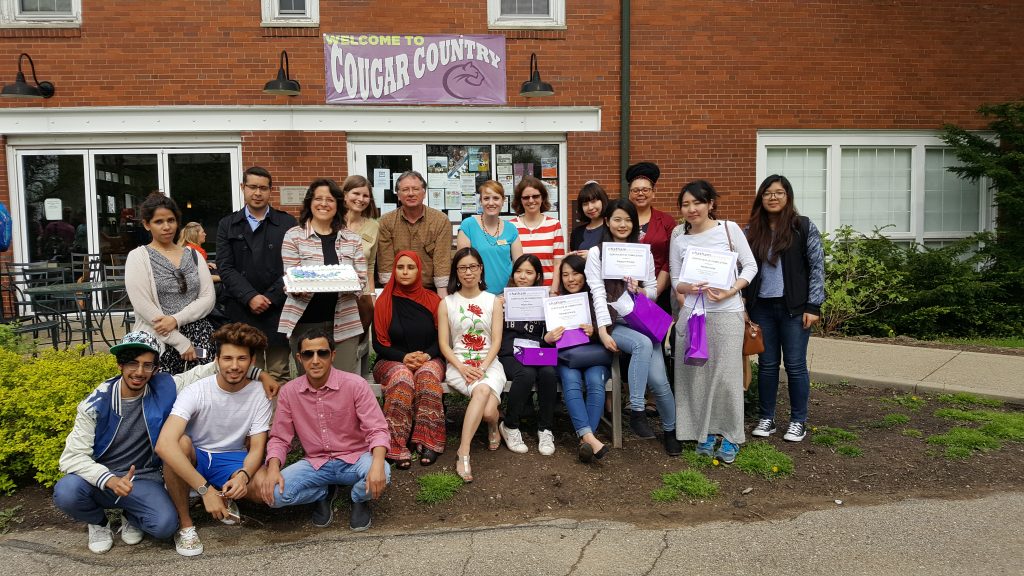
The English Language Program (ELP) chose the Carnegie Science Center for the OIA/ELP field trip this semester. Many of our Japanese students and ELP students joined us on the hands-on fun. We watched “Dream Big,” an inspiring documentary about the wonder of design at the Omnimax Theater. As usual, we held our bittersweet end-of-term party in mid-February for our Japanese exchange students, who would soon return to their home schools: Kobe College and Kyoto Women’s University, after a 6-month program in English and American culture. The spread was fantastic—Asian & American fare specially prepared for our students. We also held an end-of-term party after final exams, treating the students to pizza and cake. Several students received certificates and prizes in recognition of their efforts.
ELP students had other special days, too. Aside from the usual social activities such as our Conversation Partner Program that many students enjoy participating in, students also went on class field trips to places such as the Chatham Eden Hall and Eastside campuses, the Carnegie Art Museum, University of Pittsburgh Nationality Rooms, and Millie’s Ice Cream in Shadyside. A special group called the International Student Ambassadors helped to create a clever video to showcase the beauty of Chatham University, welcoming other international students who are considering studying abroad.
Aside from the formally hosted activities, many ELP students also took part in the indoor intramural sports such as soccer, which is held in our state-of-the-art gym.

